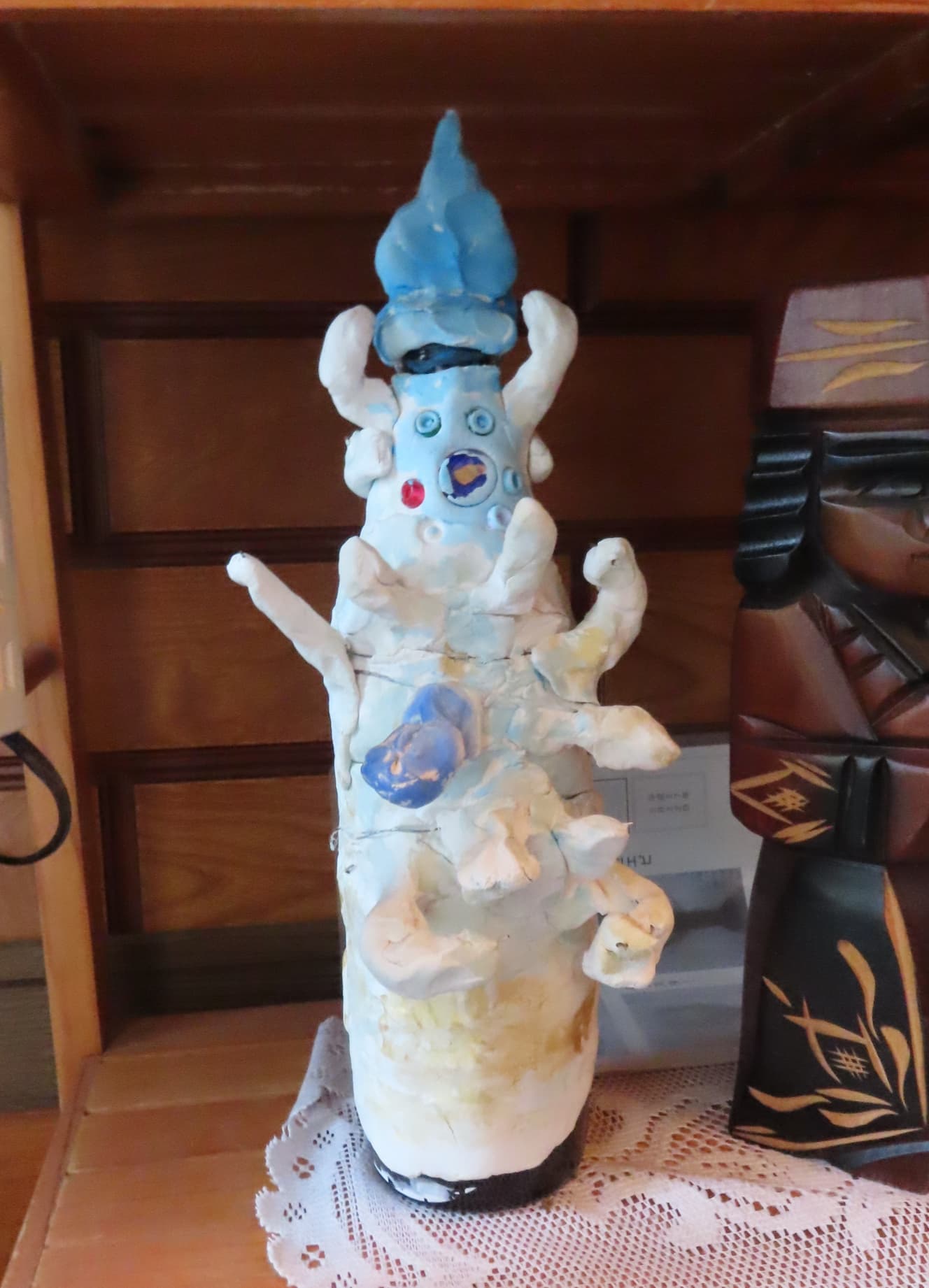Murdered 21-year-old woman….assailant boy “refracted sexual trauma from childhood”
In August 2008, a 15-year-old junior high school student, Hayato Taniguchi (pseudonym), murdered a 21-year-old woman he happened to encounter in the women’s restroom of a large shopping mall in Fukuoka City. We would like to look at the problems he is facing, following on from [Part 1: The Boy Who Murdered a 21-Year-Old Woman, “Refracted Childhood”].
We have already mentioned that Hayato was sexually abused by his mother and eldest son, but what is troubling is that at such a young age in elementary school, he was not that aware of his sexuality.
Not only was he being forced to help his brother masturbate, but he was also reading pornographic magazines and doing sexual things to his mother. This is too early in age to be considered normal.
A clue is the too fast physical development of Hayato, which was revealed after the incident. According to his own testimony and that of others around him, he began to grow pubic and axillary hair soon after entering elementary school, and by the time he was in the first grade or at least the second grade, he was even masturbating and ejaculating.
It seems that his sexual desire was also quite high. By the time she was in the third grade, she was masturbating multiple times a day, and when she was sent to a children’s self-support facility, she masturbated in public without concern. When he was sent to a children’s self-support facility, he masturbated in public without concern. This was clearly seen as “abnormal” by the staff.
Masturbating in the hallway.”
The staff member said, “He was so scared about sex.
He was very scared about his sexuality. If you let your guard down for a moment, he would suddenly start masturbating in the bathroom or in the hallway. He frequently talked about sexual matters and indiscriminately harassed children and adults alike. If we scolded them, they would get angry and start acting out, so we tried not to intervene unless there was something wrong.
Generally speaking, boys grow pubic hair in the upper grades of elementary school, and ejaculate through masturbation around the age of 12. In light of this, the development of the reproductive organs and sexual desire in fast people is incredibly rapid.
Perhaps this should be explained in terms of pathology.
Some people, due to hormonal problems or other reasons, have abnormally fast growth of reproductive organs and other organs, and an uncontrollable sex drive. For more details, please read my book, “Why did the abused boy cause the incident?” (Heibonsha Shinsho), but this is sometimes called “hypersexuality” or the like, and can be a contributing factor to sexual crimes.
If we consider that Hayato was such a case, we can gradually see the whole picture of his personality formation.
First, Hayato was born with a developmental disability. He was not good at behaving well among family members and strangers, and he tended to make more waves than necessary.

Still, if he had grown up in a typical family, he would have been able to lead a normal life with the support of his parents. However, Hayato’s family was littered with countless problems. Domestic violence and adultery by his father, physical and sexual abuse by his eldest son, and neglect and sexual abuse by his mother …….
Hayato was also developmentally disabled and could not cope well, which made those problems even greater. This caused him to carry emotional scars, or trauma.
Unfortunately, it seems that Hayato had an abnormal sexual desire that could be considered “hypersexuality. In addition to this, his own sexual urges were also distorted by the sexual violence he had suffered from his older brother.
In fact, Hayato stated to me as follows.
“I used to [masturbate] when things were inconvenient. When I was scared, lonely, angry, or frustrated. …… I had to do it to calm down. It’s been that way ever since I was in first grade or second grade or something.”
In an environment like Hayato’s, it is natural for him to have frequent ups and downs in his feelings. This is connected to his sexual desire, and every time he had a negative feeling, he would impulsively indulge in masturbation. For him, relieving his sexual desires was a way to turn away from reality.
He broke the glass at school: ……
But it seems that his roughness did not stop at masturbation. When he did not (or could not) do so, he often used violence against others as a form of venting his frustration, which became more severe as he progressed through the grades.
From the time he first entered elementary school, he would bump into other children and choke or bite them. It is said that he sometimes broke the glass of the school in a fit of emotion, so much so that he was considered to have been a good student.
My grandfather was the president of the school management council at the elementary school Hayato attended. Recalling those days, he recounts the following story.
He was about a third grader. When he lost his temper and started to act up, three or four of us had to surround him and restrain him. It was a rural school with only one class per grade, so the classmates and parents would not approach him anymore.
For children like that, you have to create a special class and give them specialized care. But because we were in the countryside, there were no teachers who could do that properly. I think that’s why he got worse and worse.
The grandfather claimed that Hayato’s problems worsened because the school did not take appropriate action.
However, in our own interviews, we heard that this was not necessarily the case. In addition to working for JA, his grandfather ran a small liquor store at home and was a prominent figure in the town, holding various positions such as a probation officer in addition to being the president of the school’s governing council.
He was known for his coercive attitude, and if he didn’t like something, he would call any teacher or principal to his house and loudly lecture them.
For example, a female teacher once gave a harsh lesson to Hayato. At that time, my grandfather called the female teacher to his house and said, “You had a bad relationship with your husband at home anyway. That’s why your teaching went wrong!” and other abusive words.

Perhaps the school teachers and the local people were not happy to see a family with such a grandfather. If grandfathers are grandfathers, parents are parents, and if children have bad behavior, it is natural for them to keep their distance.
Hayato believes that it was in the third grade of elementary school that his rough behavior became noticeable. It all started when he met a Filipino mistress that his father was dating.
He tells the following story about that time.
I was suddenly taken to Round One in Kagoshima City, and there was the Filipino mistress. I didn’t know what was going on, but I was allowed to play with him.
At that time, I had a breakthrough. Until then, I had been trying to be a good boy. But I thought that there was no point in doing that anymore, that I should just do whatever I wanted to do.
Perhaps up until that time, Hayato had been expecting his father to return to the home. But meeting his mistress probably crushed that dream.
The bad side of me came out.”
In fact, from the third grade of elementary school onward, Hayato’s outbursts became uncontrollable. When his eldest son told him not to skip school, he would get upset and take out a kitchen knife. He bites a waitress who warns him at a store. He brags to female teachers about reading pornographic magazines and shows his pubic hairy crotch to them. …… These things have led to police action on occasion.
Hayato describes himself at this time as “my bad self” coming out. He later said that his “bad self” did the same thing when he caused the incident, and he calls it the unstoppable state within himself.
His mother took the situation very seriously and took Hayato to a psychiatric hospital. There, he was prescribed medication, but the situation took an even worse turn.
The family decided to remove Hayato from their home and place him in a medical facility. He was sent to a medical facility from the third grade of elementary school, but he kept getting into violent incidents everywhere and was transferred to another facility.
From the third year of elementary school to the third year of junior high school, the children were sent to a child psychiatric treatment facility, a mental hospital, a facility for supporting children’s self-reliance, a medical reformatory, and a juvenile reformatory, without returning home. Then, in August of his third year of junior high school, he was released from a juvenile reformatory, and after almost seven years, two days after his first social outing, he committed the murder in this case.
I would like to write about his days in the facility at another time, but looking at Hayato’s upbringing in this way, we can understand the process by which his special personality was formed.
At times, disability and crime are often associated with each other. However, disability does not cause crime. Combined with family problems, the child is subjected to a number of traumas, which in turn lead to crime in various fates.
Hayato’s upbringing eloquently illustrates this point.
Interview and text: Kota Ishii
Born in Tokyo in 1977. Nonfiction writer. He has reported and written about culture, history, and medicine in Japan and abroad. His books include "Absolute Poverty," "The Body," "The House of 'Demons'," "43 Killing Intent," "Let's Talk about Real Poverty," "Social Map of Disparity and Division," and "Reporto: Who Kills Japanese Language Ability?
